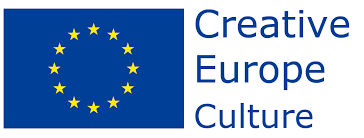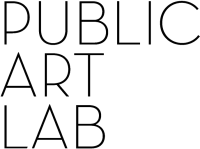Experimental Cartocraphy April-June 2023
Exhibition Der Park – 1-2 July@Mero-Halle Spreepark, Berlin
The coming weekend we invite you to explore the Spreepark as a changing habitat through a series of field studies. In particular, the disappearance of species and the arrival of new creatures (neobiota) will be made visible through the means of experimental cartography.
With the design students of FH Potsdam; Senta Bannick, Janina Bartmann, Maite Buhr, Ayleen Gabriel, Ruby Guttau, Alexandra Hendel, Katharina Hummel, Ariel Khait, Anna Kusatz, Emily Köster, Victor Molina, Klara Pröpstl, Mathis Rubach, Elisa Sagemüller, Pati Schwegler, Yette Strauss Suhr, Zhijin Tian, Guolong Wang
Under the direction of Prof. Myriel Milićević together with Susa Pop (Public Art Lab), Katja Aßmann, Jennifer Sréter and Katja Szymczak
Public Art Lab is partner of Future DiverCities, a four-year project funded by the European Commission (Creative Europe) from 2022-2026. The project was kicked off in Florence by our Italian partner Lama in October 2022.
In the cluster of Biodiversity Public Art Lab will explore the relationship between human and non-human living beings in the Spreepark which was an amusement park before the Berlin Wall fell, long a lost place, surrounded by water and now an in-between state of past and becoming a future arts and cultural venue, the Spreepark Art Space Together with Prof. Myriel Milićević and her students from Potsdam University of Applied Sciences, Public Art Lab will study especially the disappearance of species and the arrival of new creatures (neobiota) with mapping methodologies presented in artistic scenarios and performances and including the local communities and audiences.
2022-2026
Re-imagine culture-led regeneration of urban empty spaces in an ecological way
Future DiverCities is a four-year project implemented by European organisations seeking to re-imagine culture-led regeneration of urban empty spaces in an ecological way. The project will develop cultural approaches to enhance and preserve the ecological value of unused vacant spaces in 9 European Cities: Berlin, Zagreb, Split, Liepaja, Kuopio, Marseille, Florence, Timişoara and Athens (Elefsina):
• develop innovative cultural models for ecological urban regeneration.
• contribute to change the paradigm in cultural policy, placing the ecology at its centre.
• build the capacity of the creative hubs leaders to become ecological changemakers.
Future DiverCities is about systematising ecosystemic and ecological strategies in cultural urban regeneration. As it unfolds the project will create its own new ecological assessment tools to better quantify and qualify quantity and quality the ecological impact with a framework adapted to a variety of cultural interventions.
We will pilot and design new models to qualify and quantity the ecological factor in cultural development strategies. We will review and control the range of environmental impacts arising from all project’s activities.
Work within three clusters looking at three entry points to building ecological value:
Biodiversity, Commoning and Impermanence.
Public Art Lab partners of FDC are La Friche, coordinator and Seconde Nature in Marseille (France)
ANTI Festivalin Kuopio (Finland), KONTEJNER in Zagreb and Split (Croatia)
LAMA Impresa Sociale in Florence (Italy)
BIOS and European Creative Hubs Network-ECHN in Athens (Elefsina, Greece)
the City Council “Culture Department” in Liepaja (Latvia)
Savonia University in Finland (savonia.fi)
and PLAI in Timişoara (Romania)
The project also benefits from the expertise of INNOCAMP PL in Poland (Ashoka network) (innocamp.pl),
LAMA Impresa Sociale in Italy, Savonia University in Finland and Trajna in Slovenia (Krater project / krater.si).



